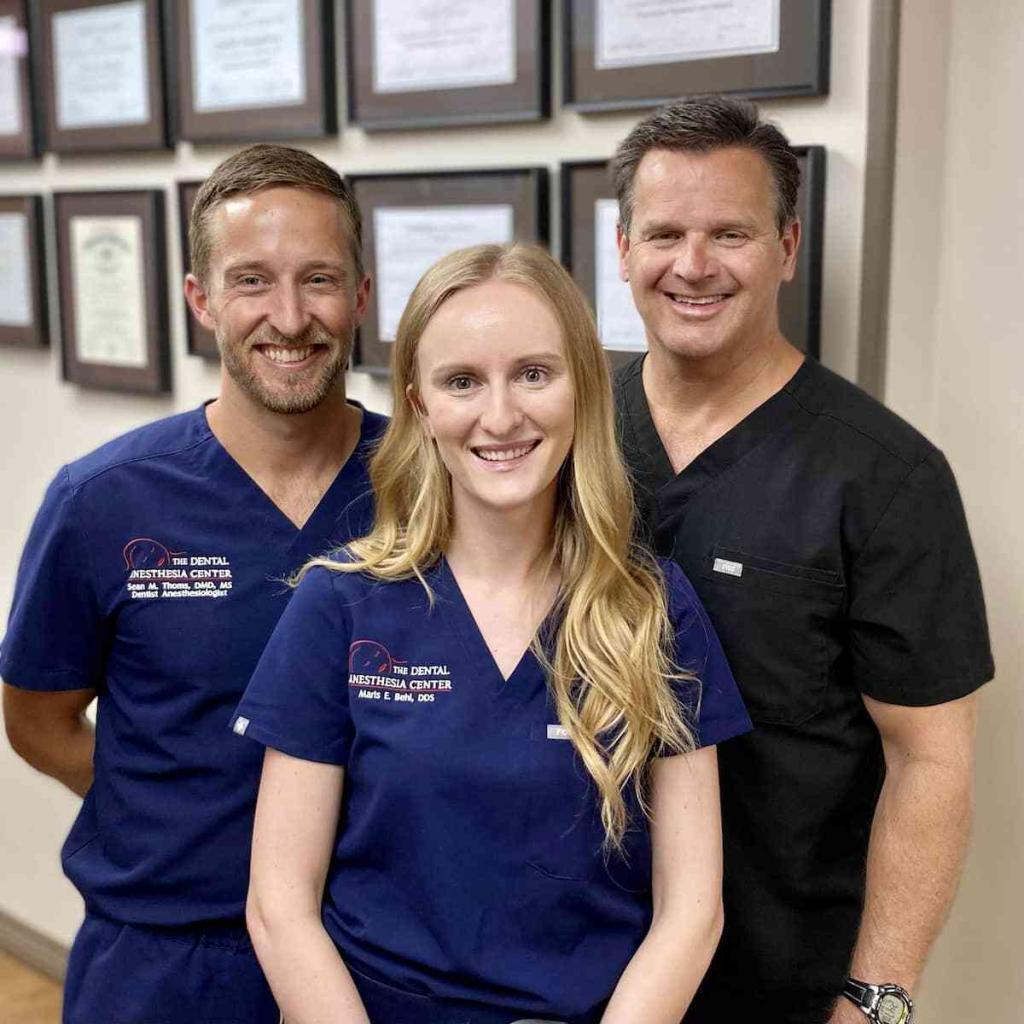Are you struggling with bad breath? Here’s what might be the cause and what you can do to fix it. Contact us to get fresh breath today.
We’ve all had that moment—cupping a hand over the mouth, checking our breath, and wondering, “Is it me?” Bad breath, or halitosis, can be more than just a social inconvenience. It’s often a sign of underlying oral or medical issues, and for many people, it can seriously damage confidence and relationships.
At The Dental Anesthesia Center in St. Louis, we help patients address the root causes of chronic bad breath—often with simple solutions and, when needed, comfortable care options like sedation for those who are nervous about visiting the dentist.

What Exactly Is Halitosis?
Halitosis is persistent bad breath that doesn’t go away with brushing, mouthwash, or mints. While almost everyone experiences temporary bad breath (especially in the morning or after garlic-heavy meals), chronic halitosis typically signals a deeper issue.
Common Causes of Bad Breath
1. Poor Oral Hygiene
- The most common culprit. When food particles and bacteria build up around the teeth, tongue, and gums, they release foul-smelling compounds.
- If you skip flossing, you’re leaving about 35% of your tooth surface uncleaned.
2. Gum Disease
- Gingivitis and periodontitis harbor anaerobic bacteria that produce sulfur compounds—the “rotten egg” smell.
- Bleeding gums can also create an environment where bacteria thrive.
3. Dry Mouth
- Saliva helps cleanse the mouth and neutralize acids. A dry mouth allows bacteria to grow unchecked.
- Common in people taking medications, those who mouth-breathe, or anyone with salivary gland issues.
4. Dietary Triggers
- Garlic, onions, coffee, and alcohol are known offenders.
- High-protein, low-carb diets can also create ketone breath—a strong, chemical smell.
5. Smoking or Tobacco Use
- Tobacco products leave a distinctive odor and dry out the mouth, increasing bacteria.
- Smokers are also more likely to have gum disease, compounding the problem.
6. Tonsil Stones
- Small, calcified deposits that form in the tonsils and trap bacteria and debris.
- Often produce a strong, foul odor when disturbed.
7. Underlying Medical Conditions
- Bad breath may indicate:
- Sinus infections
- Acid reflux (GERD)
- Diabetes (sweet or fruity breath)
- Liver or kidney issues
If you’ve ruled out oral causes and still have persistent bad breath, it’s worth consulting a physician.

How Is Bad Breath Diagnosed?
At The Dental Anesthesia Center, we conduct a comprehensive evaluation that may include:
- Review of medical and dental history
- Examination of gums, teeth, and tongue
- Measuring pocket depths to assess for gum disease
- Identifying signs of dry mouth or oral infections
For patients who feel anxious or embarrassed about this discussion, we offer sedation options to make your visit as stress-free as possible.
How to Get Rid of Bad Breath
1. Upgrade Your Daily Hygiene Routine
- Brush twice a day with fluoride toothpaste
- Floss daily to remove hidden food particles
- Don’t forget to brush your tongue—a major source of odor-causing bacteria
2. Stay Hydrated
- Drink water regularly to stimulate saliva
- Avoid sugary or acidic beverages that contribute to dry mouth
3. Quit Tobacco
- One of the most powerful ways to improve both your breath and overall health
4. Use Antimicrobial Mouth Rinses
- Look for rinses that kill bacteria, not just mask odor
- Avoid alcohol-based rinses if dry mouth is an issue
5. Treat Gum Disease
- Professional cleanings
- Scaling and root planing (deep cleaning)
- Ongoing periodontal maintenance
6. Address Dental Issues
- Repair cavities or cracked fillings
- Remove impacted food or treat infections
Too Anxious to See the Dentist? We Can Help.
If the fear of judgment or pain is keeping you from getting help for bad breath or gum disease, you’re not alone. Many of our patients come to us after years of dental avoidance, and we offer:
- Oral sedation for mild anxiety
- IV sedation for deeper relaxation
- General anesthesia for complex cases or special needs care
You don’t have to live with the discomfort—or the embarrassment—any longer.

Let’s Get to the Bottom of Your Bad Breath
If your bad breath isn’t going away, it’s time to stop masking it and start treating it. We’ll help you figure out what’s causing it—and create a customized plan to eliminate it, comfortably and compassionately.
Located in St. Louis, The Dental Anesthesia Center is here to help you feel fresh, healthy, and confident again.
Call us at (314) 862-7844 or schedule a consultation online today.

